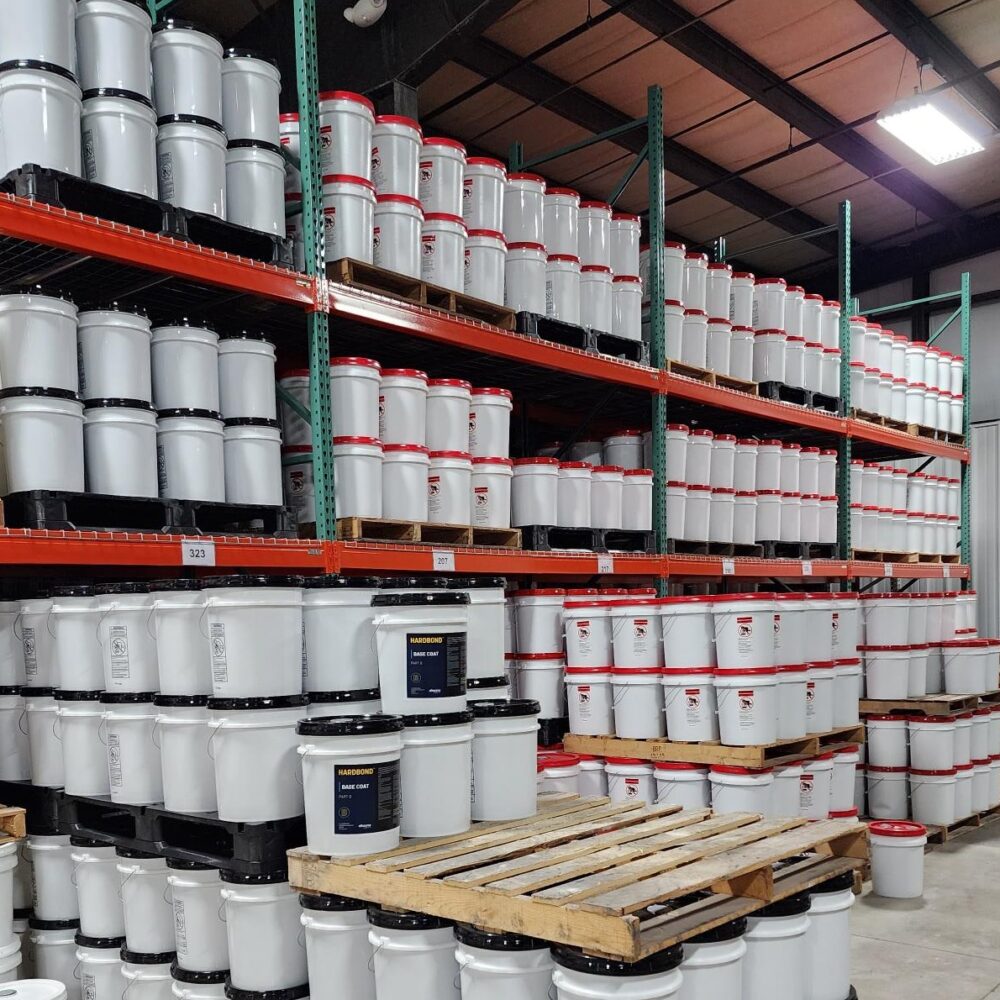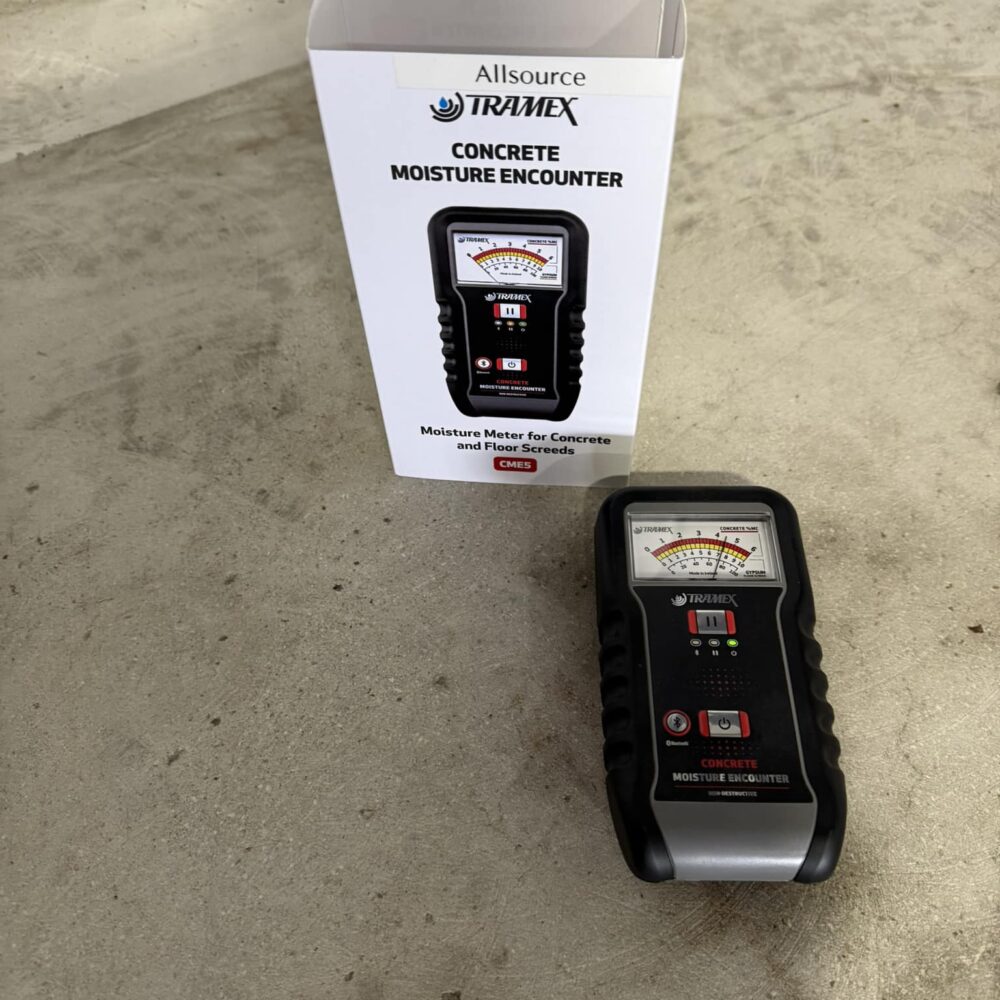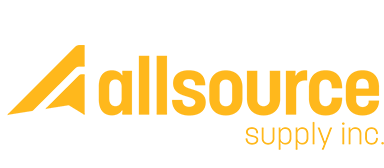Concrete Coating Surface Prep: How to Test Moisture the Right Way
“We’ve been to two of their training classes—lots of hands-on and tons of knowledge. They treat you like family.”
That’s what one contractor had to say after attending our in-person training at Allsource Supply Inc. And it’s not just about product—it’s about the prep. The most overlooked part of the job is often the most important: moisture testing.
Coating failure? It’s not always the product. More often, it’s the surface. Specifically, a slab that wasn’t moisture-tested properly before coating. Whether you’re applying epoxy, polyurea, or broadcast systems, you’ve got to test—not guess.
Here’s how to make moisture testing a reliable part of your concrete coating surface prep, and not an afterthought that costs you money.

Allsource Supply Inc. Products
Why Moisture Testing Matters (Ask the Contractors Who’ve Been Burned)
Moisture isn’t always visible—but it’s always a risk. Whether you’re working in Arizona, the Southeast, or up north, concrete can hold surprising levels of trapped vapor.
One customer, Dennis Nooren, a Dutch contractor assisting a friend in the U.S., reached out to Ultra Durable Technologies for guidance. They pointed him straight to us at Allsource Supply Inc. Here’s what he said:
“From the first phone call to the last email, the customer service and expertise was wonderful. They helped check whether we had a proper plan. When the shipping company messed up—not once, but twice—they sorted it instantly. Just all-round wonderful people.”
That kind of trust is built on execution. We don’t just sell floor coatings equipment—we make sure your job doesn’t fail from a basic prep mistake.

Allsource Supply Inc. Warehouse
3 Moisture Testing Methods Every Installer Should Know
At Allsource Supply Inc., we work with pros who are installing in hospitals, schools, basements, and garages. Here are the top 3 tests we consistently recommend, based on ASTM standards.
1. Plastic Sheet Test (ASTM D4263)
Simple and fast:
- Tape a clear plastic sheet (18×18″) on a bare slab.
- Seal edges with duct tape.
- Wait 24 hours.
- If you see condensation or darkened concrete, moisture is present.
✅ Quick, cheap
❌ Not quantifiable—pass/fail only

Tramex Moisture Encounter
2. Calcium Chloride Test (ASTM F1869)
This one gives you numbers:
- Place pre-weighed calcium chloride dish on slab.
- Seal with dome for 72 hours.
- Reweigh and calculate moisture vapor emission rate (MVER).
✅ Gives measurable output
❌ Only tests surface moisture
3. In-Situ Relative Humidity Test (ASTM F2170)
Ideal for newer or thicker slabs:
- Drill into the concrete and place RH probes.
- After 24–72 hours, check readings.
- RH above 75% typically requires mitigation.
✅ Measures internal slab condition
❌ Requires RH sensors and drilling
Common Questions About Moisture Testing (And Clear Answers)
How much moisture is too much?
Most epoxy systems fail above 3 lbs/1,000 sq. ft. MVER or 75% RH. Always verify the limits in your product’s TDS (technical data sheet). Some mitigation products tolerate more, but testing is still mandatory.
What if I get a high reading?
Use a vapor barrier or moisture-tolerant base coat. We stock products like Vexcon Vapor Reducer and Tnemec Series 6 that are built for these situations.
Can I just test visually or by feel?
No. Moisture can be hiding even if the floor feels dry. Visual checks won’t reveal vapor pressure that causes bubbles and peeling.
What tools do you recommend?
- Tramex CMEX5 – for concrete moisture detection
- Wagner Rapid RH L6 – for in-situ RH testing
- Calcium chloride kits – for MVER testing
Make Moisture Testing Part of Your Process, Not an Afterthought
We’ve heard it from dozens of installers: “I wish I’d tested first.” At Allsource Supply Inc., our goal isn’t just to sell product—it’s to make sure your floor stays down.
We see surface prep as a mindset, not a checklist. Moisture is invisible—but its damage isn’t.
When you test properly:
- You reduce failures
- You avoid callbacks
- You earn trust (and repeat business)
And as our client said after two training sessions with us:
“They offer a ton of knowledge, a lot of hands-on, and great products. I’d recommend them to anyone.”
That’s what we aim for every time—partnership, not just purchase.
Need help choosing the right testing tools or vapor barrier? Want advice before you grind?
Call us at 833-663-4255—we’ll walk you through your job and help prevent a moisture disaster.
Your next install depends on what you do before the coating goes down.
Let’s get your concrete coating surface prep right—together.
- How Long Does Concrete Coating Take to Cure? - July 11, 2025
- Best Ways to Protect and Enhance Concrete Surfaces for Long-lasting Durability - July 7, 2025
- How Fast Can You Return Polyaspartic Floor Coatings to Service? - June 25, 2025

